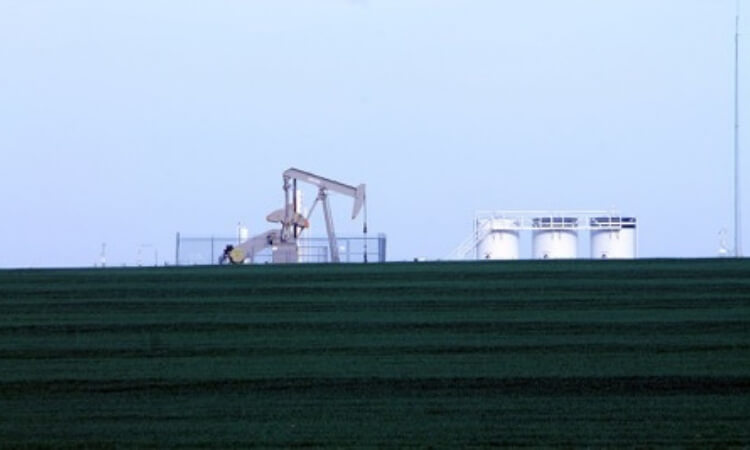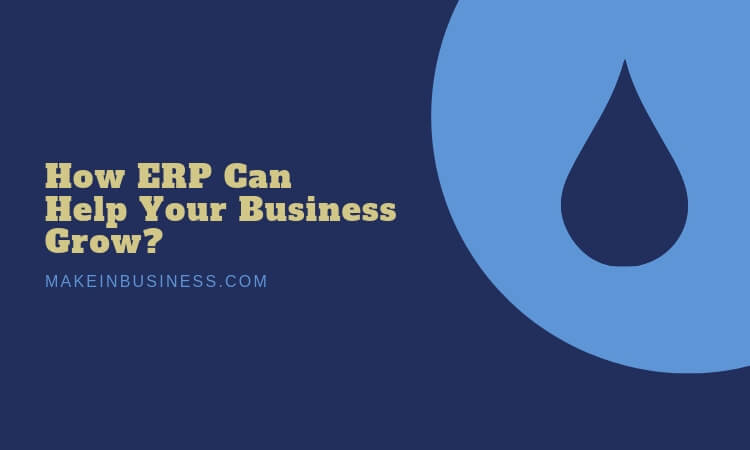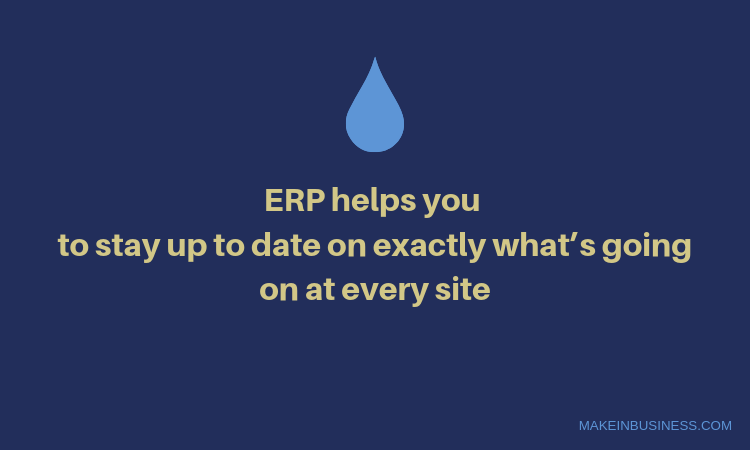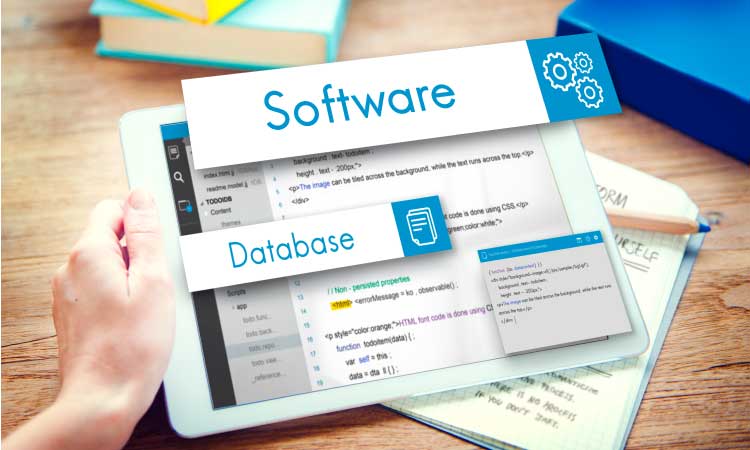Energy, Oil & Gas Manufacturing Software

The energy industry faces its own unique challenges, and as a consequence, those managing businesses in this industry must devise and put into place solutions that are tailor made to deal with those issues. While this extends to all areas of the business, it can be seen prominently in terms of the software used to manage business operations. You must make a careful selection when choosing the software you will use to manage your energy business.
Discover what a modern enterprise resource planning (ERP) system can do for you and how it can help you excel in your industry and take your business operations to the next level.

Exploration and Production
The first stage of the energy industry, of course, is exploration and production, and if this is your area you will see great benefits from the implementation of an ERP system. ERP systems facilitate communication across all branches of your business, eliminating both paperwork and the insecurity caused by time delays.
The software will also help you manage expenses by tracking and reporting on expenditures and displaying the results in an easy to read format, allowing you to shore up areas that may be receiving more funds than necessary and redistribute financial assets to areas that haven’t been adequately funded.
Midstream Operations
Midstream operations refers to the processing, storing, transporting, and marketing of energy fuel, and it’s a very important stage when it comes to error-free operations. An ERP system can help manage this phase by tracking emerging opportunities on the market. It can also build transparency into the entire process, allowing you to locate points at which the price may be getting driven up and to work towards bringing it down.
ERP systems also provide price simulators that allow you to run hypothetical scenarios and determine whether a different arrangement might save you money in the long run.
Oilfield Services

One of the most complex and difficult parts of the energy industry is that by nature it requires workers to operate at remote locations. This makes communication difficult. You can’t know exactly what’s going on at all your locations at all times.
But ERP systems remove that complication by building live updates into the operation of the business. Now you can stay up to date on exactly what’s going on at every site. This clear communication will also help you better staff your projects for optimal success and stay up to date on the latest compliance requirements.
An ERP system will change the way energy companies do business, sparking massive improvements in overall operations. Discover what this software can do for you today.
FAQS
Energy, Oil & Gas Manufacturing Software is a set of applications and programs designed to meet the specific needs of those working in the energy, oil and gas industries, such as for oilfield services, facilities and equipment manufacturing, drilling management and production optimization. The software is designed to enable the efficient and cost-effective production of energy, oil and gas products and services.
Energy, Oil & Gas Manufacturing Software typically includes features to help with operations, such as drilling management tools, production optimization tools, and process management capabilities. The software also allows for more efficient data collection and processing, and offers integrated analysis and reporting to help inform decision-making. In addition, the software may also feature safety and compliance reporting capabilities and automated workflows to help streamline operations.
In general, Energy, Oil & Gas Manufacturing Software requires a suite of software components, including databases, application development tools, web-based applications and industry specific software. Additionally, users may need industry-specific hardware like DCS/PLC systems, field sensors and nearby communication devices.
Energy, Oil & Gas Manufacturing Software can help improve operations by helping with drilling management, production optimization, process management and data collection. The software can also help with decision-making by providing integrated analysis and reporting capabilities. Furthermore, automated workflows can help streamline operations and make them more efficient.
Energy, Oil & Gas Manufacturing Software can help minimize both production and inventory costs. It provides users with real-time data visualization and reporting, allowing them to quickly identify any inefficient production costs and wastage. Additionally, it allows users to make informed decisions about their production processes and inventory levels, ensuring that production costs are kept down and that the right material and resources are used in the right amounts. Moreover, it can also offer automated ordering capabilities, allowing users to ensure optimal resource utilization and further minimize costs.
Energy, Oil & Gas Manufacturing Software can help increase efficiency in several ways. Firstly, it provides users with the ability to track production costs, material resources and production processes in real-time, allowing for quick identification of any inefficiencies or problems that can be quickly addressed. Additionally, the software can offer forecasting and optimization tools, which can help users anticipate changes in their production processes and adjust their strategies accordingly. Furthermore, it provides users with powerful reporting and data visualization capabilities, allowing them to quickly evaluate the performance of their manufacturing process and identify areas for improvement.
Energy, Oil & Gas Manufacturing Software typically offers comprehensive security features to ensure the safety and security of sensitive production and inventory data. These features generally include authentication tools, data encryption and user access control, allowing users to easily restrict access to their production and inventory data while still allowing authorized personnel to access it. Additionally, the software can offer threat detection capabilities, alerting users to any suspicious activity and potential security threats.
Most Energy, Oil & Gas Manufacturing Software products are designed with easy integration in mind, allowing businesses to quickly and easily connect the software with their existing business system. In most cases, the software will come with comprehensive integration tools and tutorials, allowing users to connect quickly and easily. Additionally, many products offer comprehensive web-based tools and APIs, allowing users to quickly and seamlessly connect their existing business system with the software.
The cost of Energy, Oil & Gas Manufacturing Software will vary depending on the features, capabilities and support offered by the product. Generally, products with more comprehensive features and better support will cost more than basic packages. However, in most cases, users can find software that is tailored to their specific needs and budget. Additionally, many products offer free trials and demo versions, allowing users to get a feel for the product before committing to a purchase.
The level of support offered by Energy, Oil & Gas Manufacturing Software will depend on the product and vendor chosen. Generally, many products come with comprehensive online documentation and tutorials, as well as customer support teams that are available to answer questions and provide assistance. Additionally, some vendors may offer dedicated support for premium packages, such as on-site training, hotlines and remote access to specialized technical staff. It is important to choose a product that offers the support you need to get the most out of your investment.






